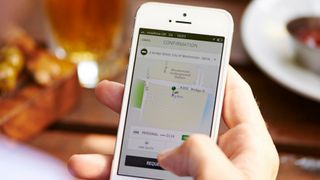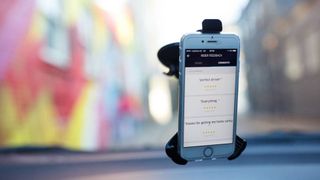Uber has lost its license in London - what does it mean for you?
How will it affect you?

Ever feel like history is just repeating itself? Once again Transport for London (TfL) has revoked Uber’s license to operate in London, meaning that in the not too distant future the service could conceivably be disappearing from the capital’s streets.
This is the latest battle in a long-running dispute between Uber and TfL. London’s transport agency first revoked Uber’s Private Hire License in 2017 in a dispute over safety.
But will this actually happen? Or is it just posturing? We've tried to answer the most important questions you'll have.
Why has TfL done this?
TfL claimed that Uber wasn’t doing enough to ensure that drivers were who they said they were, or spoke good enough English to communicate with passengers.
This time around, complaints are similar. In a statement posted on Twitter, Sadiq Khan said that Londoners’ safety was his “absolute number-one priority”.
He pointed towards reports that in the last few months, 14,000 Uber journeys in the capital were completed by fraudulent drivers, who uploaded their photos to other drivers' accounts .
The aim was to trick passengers into thinking they were the correct driver, and to enable them to drive for Uber without being properly licensed by both TfL and Uber.
Get daily insight, inspiration and deals in your inbox
Get the hottest deals available in your inbox plus news, reviews, opinion, analysis and more from the TechRadar team.
What does it mean for Uber drivers?
Uber currently has around 45,000 drivers in the capital and the immediate problem for them is one of uncertainty. As things currently stand, Uber will be able to continue operating while it appeals the decision - but until the decision is made, or until Uber and TfL reach a new arrangement, it means that could face the prospect of being out of work
The good news is that even if Uber does disappear, there are already rivals, such as Bolt and Kapten, which both drivers and customers will be able to switch to. And hey, in the best case scenario where TfL and Uber make up, maybe TfL will use its leverage to insist on better conditions for drivers too.
What does it mean for Uber itself?
The decision could have a big impact on Uber’s business. You might not realize this but at the moment Uber isn’t profitable. Instead, it is funded by venture capitalists like the Saudi government’s investment arm.
They’re piling their money into the company in the hope that it will expand and capture an enormous market share of the ride sharing market, and that once it is massive, Uber will have the scale (and maybe have implemented autonomous vehicles) to make it profitable.
So for TfL to turn the screws, it both risks one of Uber’s biggest markets, and even if TfL lets Uber continue operating, greater requirements in terms of driver training, or other checks, will make it harder for Uber to reach profitability.
So is Uber doomed? Can I still call an Uber in London?

In an email sent by Uber to its customers in London today, it said that “We think this decision is wrong and we will appeal,” and confirmed that the 3.5 million Uber customers in London will continue to be able to use the service for the time being.
It probably isn’t worth losing too much sleep over Uber. It seems likely that as with the 2017 dispute, it is essentially TfL playing hardball negotiators in a negotiation with Uber about how it should behave. TfL ultimately knows that more transport options are good for Londoners, but by threatening the license, it can force TfL to meet higher standards.
After the 2017 dispute, Uber introduced a number of new policies and mechanisms to keep TfL happy, such a 24 hour support phone line, new safety training for drivers, and most recently a button in the app to report discrimination by drivers for if passengers feel discriminated against.
So realistically, we would bet that this uncertainty will rumble on for a few months, but ultimately TfL and Uber are likely to resolve their differences, as it is within the interests of both parties to do so.
What does this mean for other cities and countries?
The TfL decision is obviously specific to London but could conceivably have broader consequences. As a capital city, London is hugely influential, and seeing TfL take a stand could encourage other cities and locales to do the same.
Last year, for example, New York went to war with Uber over pay and conditions for drivers, and more broadly, “gig economy” jobs are increasingly a part of political debate. So similarly, we could start to see governments impose more restrictions or requirements on Uber if they don’t meet the standards politicians expect.
Does this affect all of Uber? What about UberEats?
The good news is that no, this decision shouldn’t affect UberEats, or other parts of Uber’s business such as the UberJUMP e-bikes that have recently launched in London.
The license TfL has pulled is Uber’s license to operative Private Hire Vehicles, or “minicabs”, as everyone but the Uber press office actually calls them.
Luckily, there are no rules against paying someone to bring you a KFC for lunch when you’re too hungover to go out and get it yourself. Only your own sense of self-esteem and personal morality can stop this.
Most Popular

